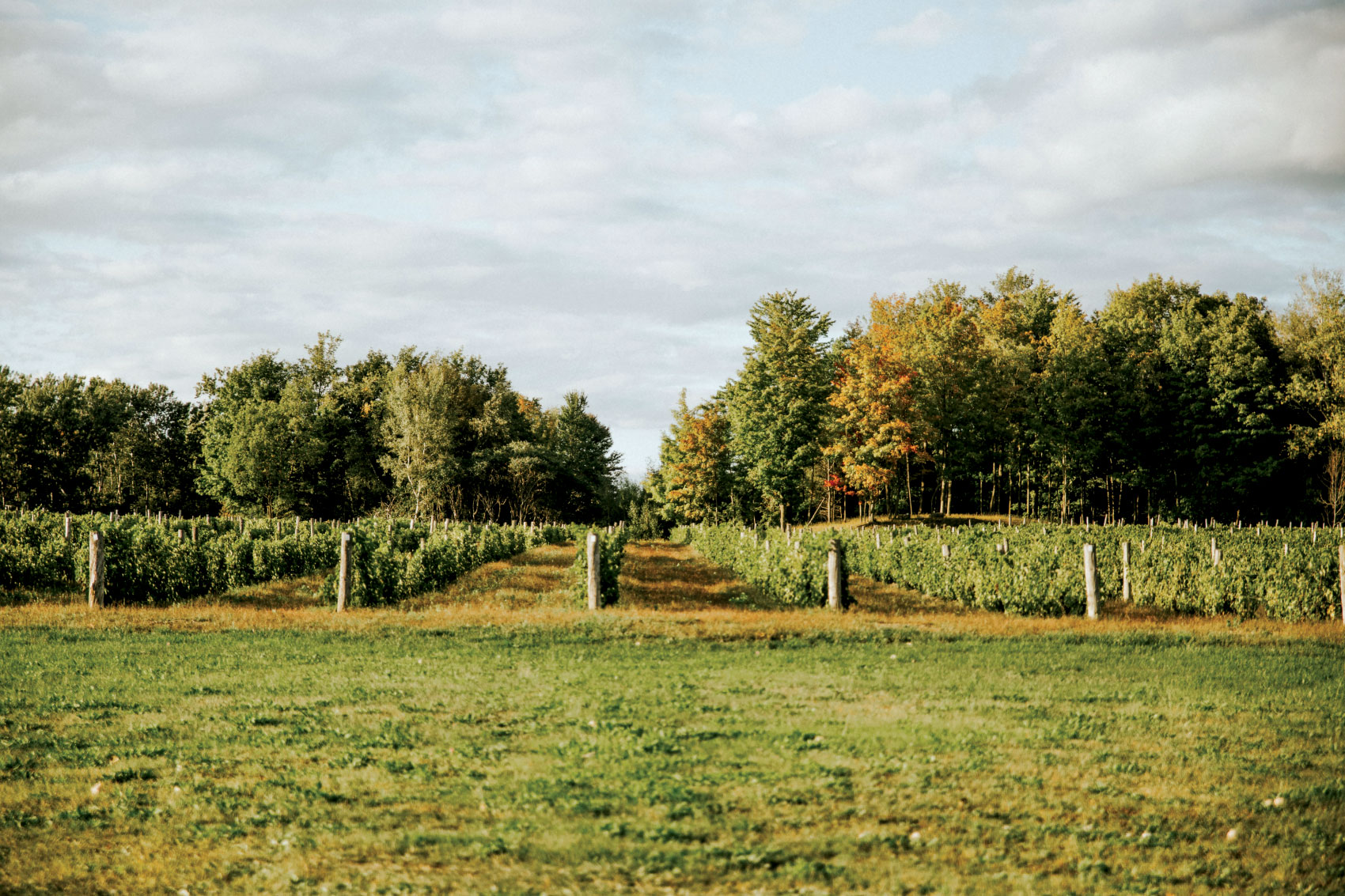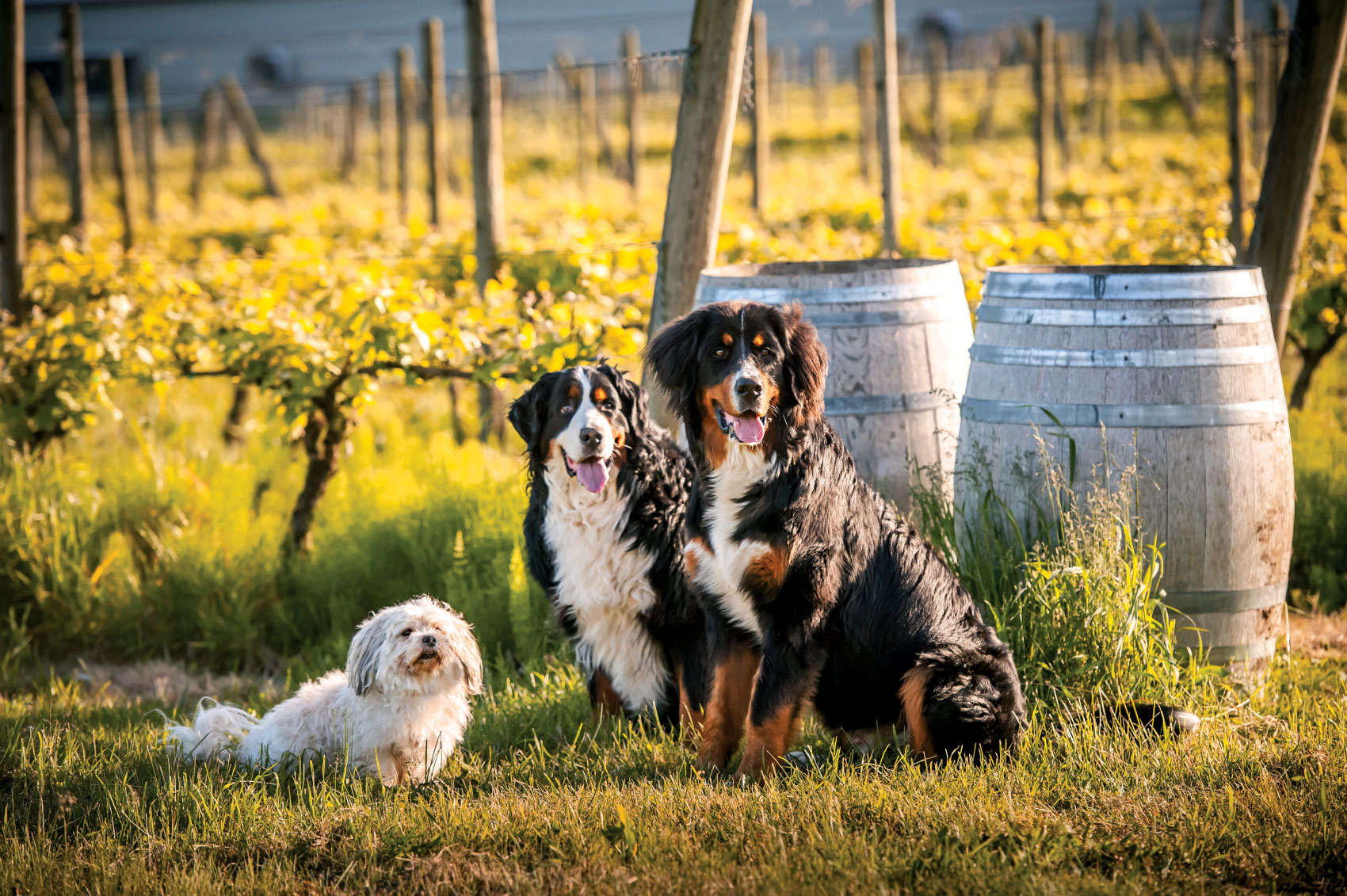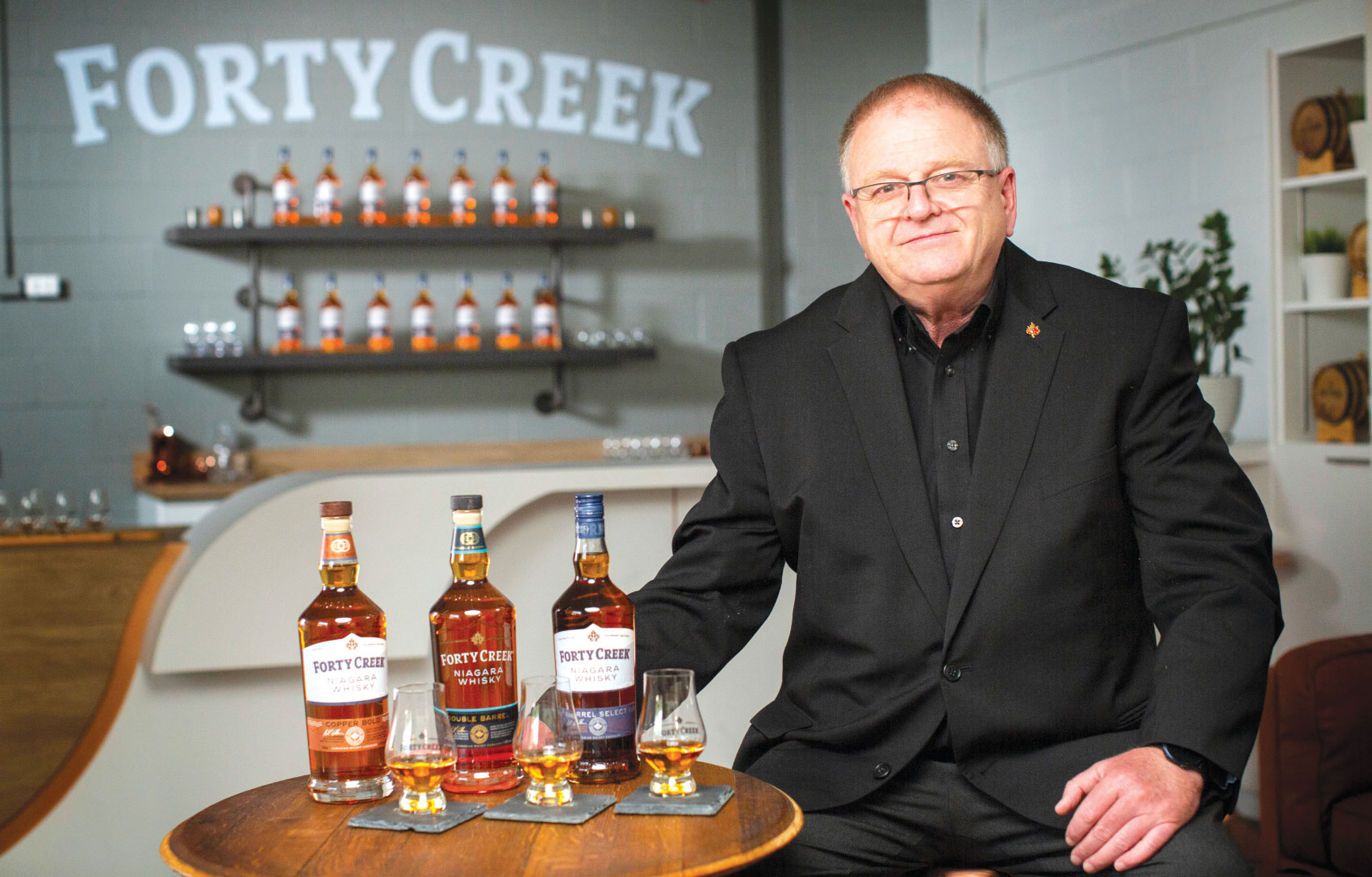Denis Paradis knew he and his friends appreciated a good glass of wine, so just for fun, he planted a few grape vines around his house. The vines thrived, and he made some wine. It was good.
Encouraged by the success, he then decided to buy land across the street. He planted more grapes, and then a few more, with the thought of creating a winery – or at least a place where his friends could gather, pick grapes and take part in the harvest and a crush party each fall.
“They drank all the wine they made,” said Marie-Florence Crevier-Paradis, Denis’s daughter. “It was just for fun, really, for the first few years.” However, the numbers – and the quality of the wine – spoke. Denis, a lawyer by trade, realized he had the makings of a real business, and Domaine du Ridge was born.
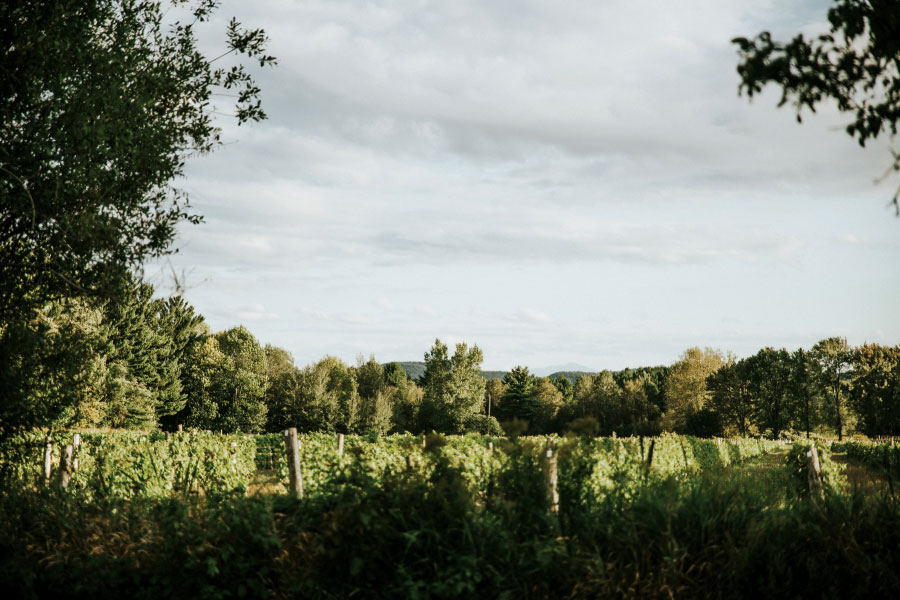
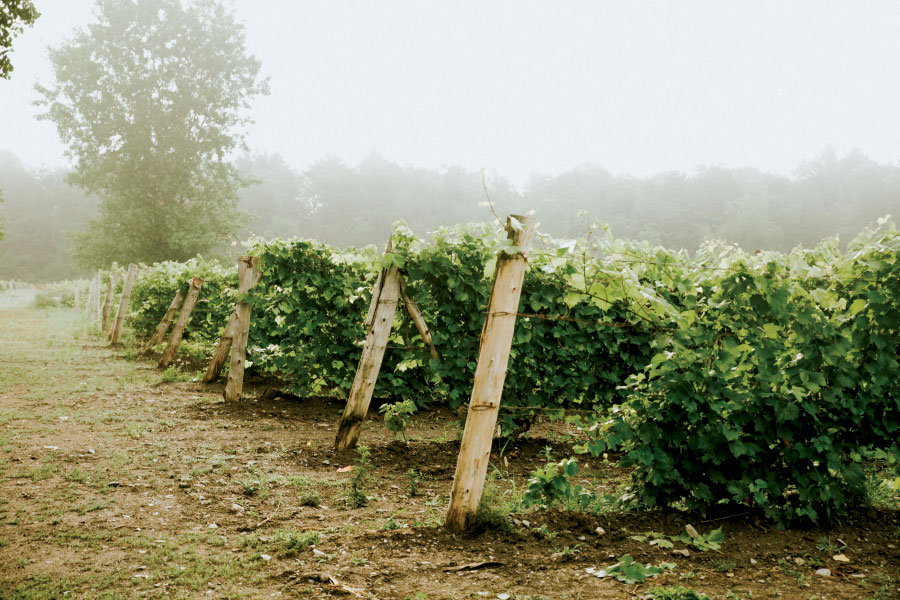
Flash forward 28 years, Domaine du Ridge is now recognized as one of Quebec’s first major wineries. Located in Saint-Armand in Quebec’s Eastern Townships east of Montreal, the winery now has more than 234,000 vines. Part of the Brome-Missisquoi wine route, it is also one of the largest wineries in the province.
While some wineries in Quebec are starting to experiment with vinifera grapes, the Domaine du Ridge team has decided to stay focused primarily on French hybrids, including Seyval Blanc, Vidal, Seyval Noir, Maréchal Foch, Lucie Kuhlmann and De Chaunac. Vidal, Maréchal Foch and Lucie Kuhlmann are the most popular.
“We might, in the future, experiment with planting vinifera vines, but our hybrids are adapted for the climate here in Quebec,” Marie-Florence said. “They can handle the extreme temperatures we get.”
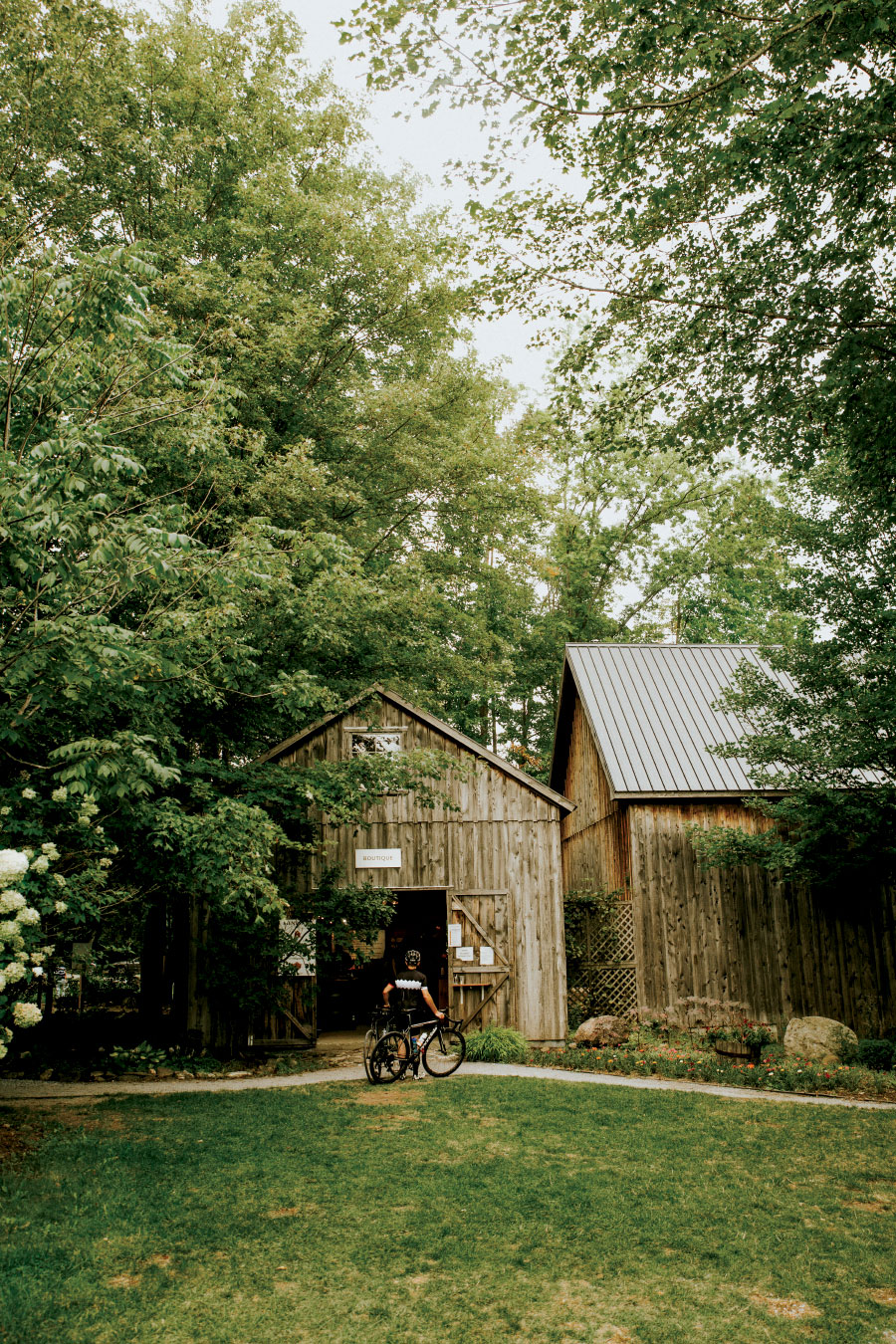
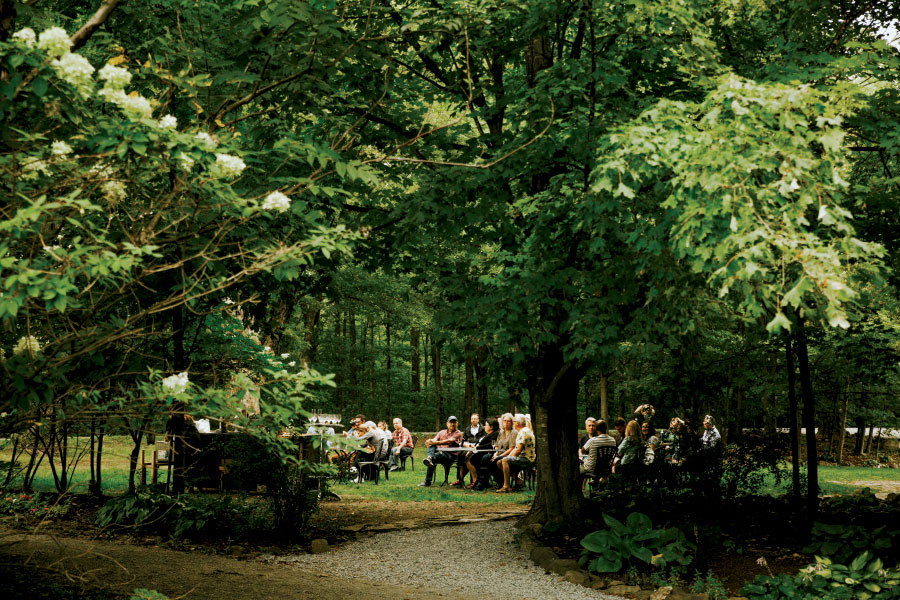
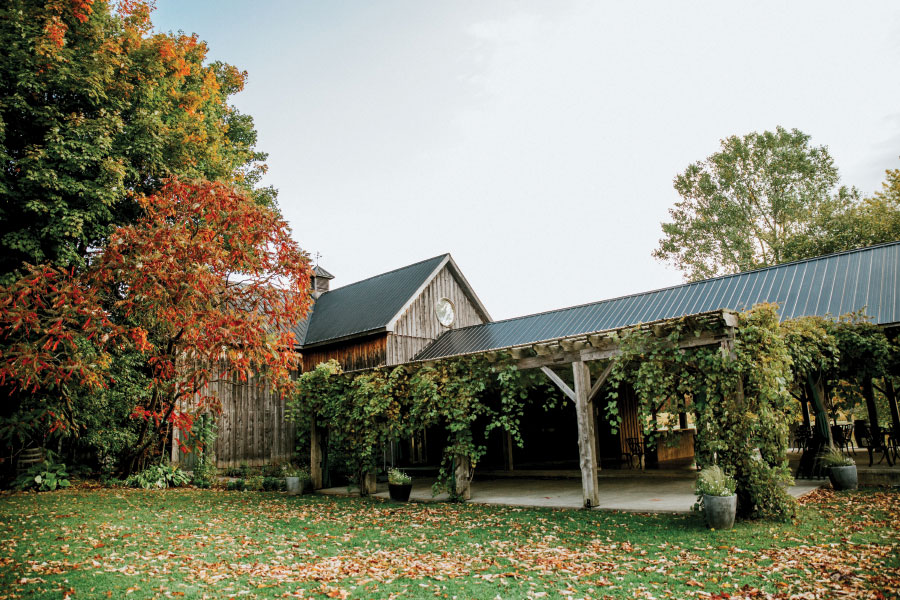
Domaine du Ridge creates roughly 20 different products each season, all sold only in Quebec. Every variety is harvested and fermented separately before blending. Le Stanbridge, named in honour of a nearby village, is one of Domaine du Ridge’s top sellers. It’s a dry white made from Vidal, with notes of lime, tropical fruits and flowers.
Then there’s the Champs de Florence rosé, one of the top selling Quebec rosés at the Société des alcools du Québec (SAQ), the province’s government-operated wine and liquor stores.
The Fado is a Port-style fortified wine, and the winery team has also experimented with making vermouth. Every year, they make a very popular pet-nat (short for pétillant naturel, an ancient French style of wild-ferment sparkling wine), plus a piquette, a French alcoholic drink made by adding water to pomace, the grapes leftover after pressing.
The winery’s products are categorized into four different series, all designed for slightly different markets. The Origin series, which has remained consistent for the past 18 years, includes red, white and rosé wines, plus some specialties, including the aforementioned Fado and a late-harvest wine.
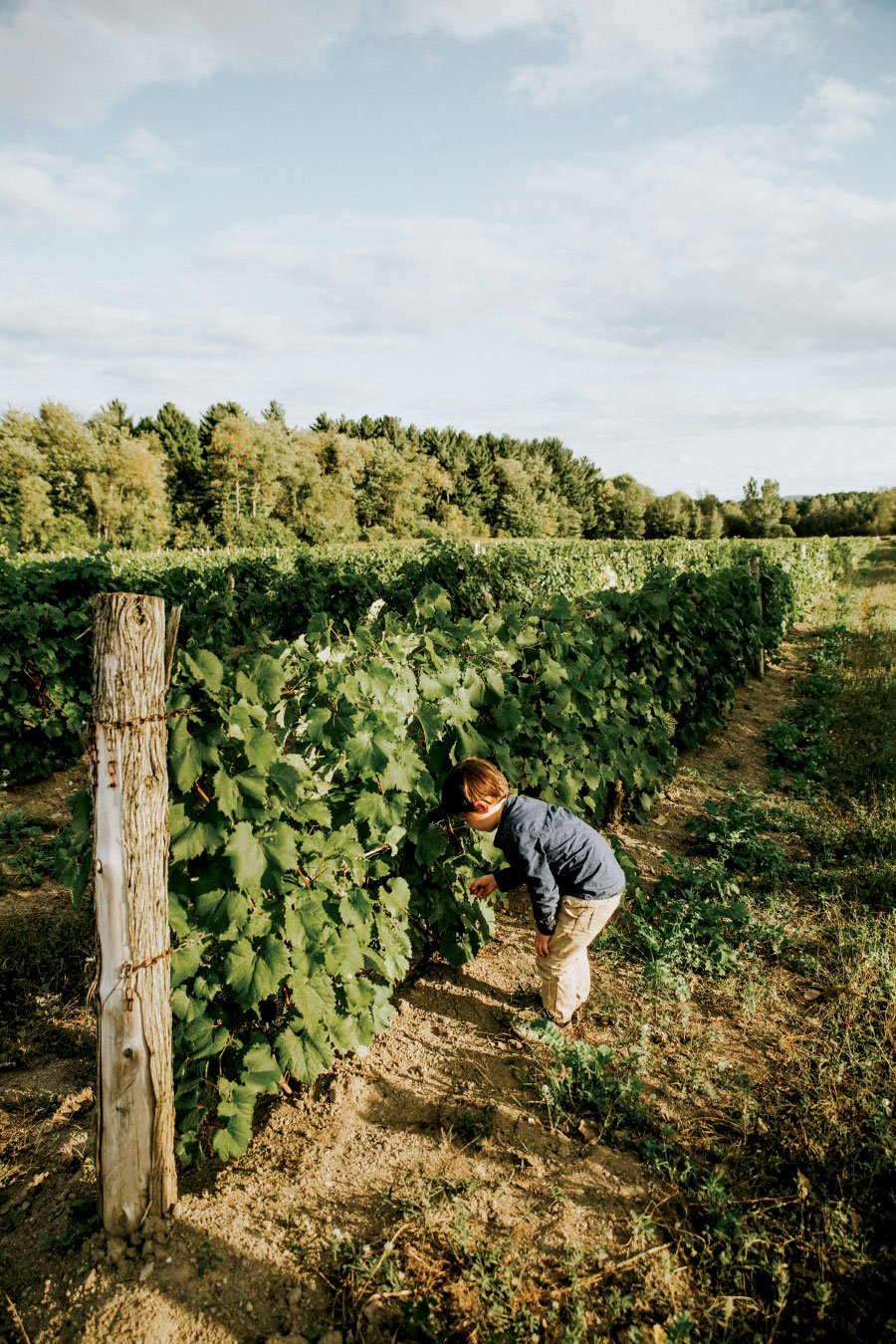
In 2016, provincial liquor laws changed, and the winery could start to sell their products in grocery stores. In response, they created a new series of wines specifically for that market.
Also part of the Origin line, a third series of just three products (a red, a white and a rosé) is geared toward SAQ shoppers in particular, while a fourth series, Les Petites Cuvées (a sister brand), is for the winery boutique and website, plus some specialty grocery stores within Quebec. “These products change every year for fun,” she said, adding that they are all small-batch.
In addition to selling wines, the winery also hosts special events and weddings at the beginning of the season, before the increased harvest traffic begins from the nearby pick-your-own apple orchards. “We have a lot of space… five different spaces that can handle 100 people at each,” Marie-Florence said. “And we close a big part of the site for private events so that each party has a lot of space. You are really in nature here.” Indeed, being so close to nature means the Domaine du Ridge team has plenty of wildlife on the land.
“We know when the grapes are ready to pick because the deer and the birds show up. Raccoons, too,” Marie Florence said. They use barriers to help keep the deer out of the vineyards, and they are experimenting with netting, too. They are trying various systems after raccoons cleared out one of their top vineyards overnight a few years ago. “Thousands of grapes, gone,” she said. “And we had thought it would be one of the greatest harvests.”
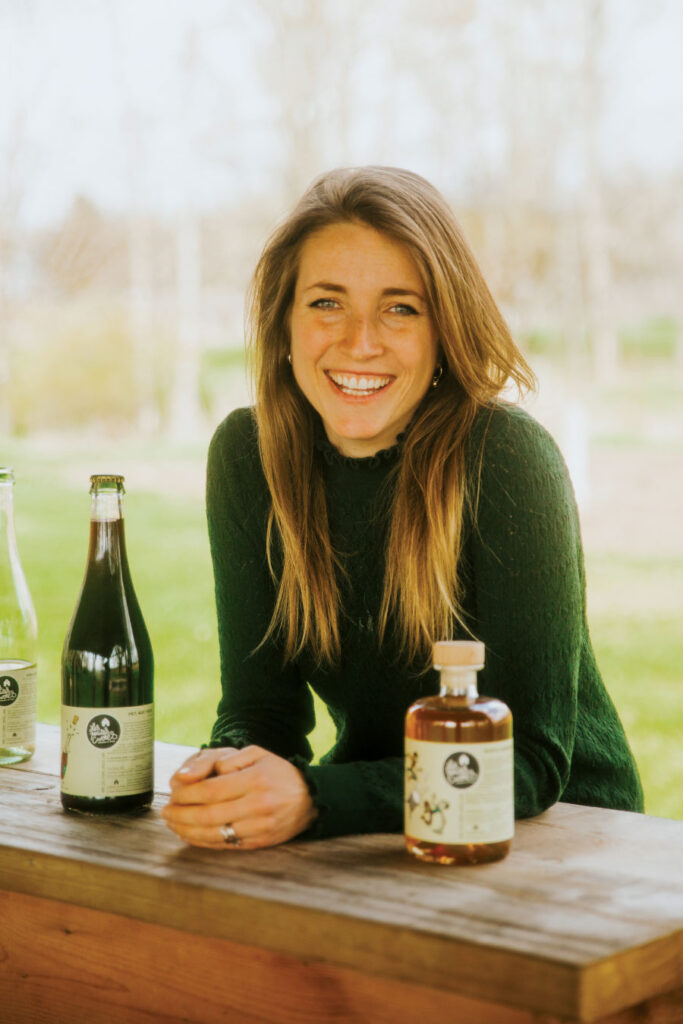
I used to put the labels on the bottles, before we had machinery to do it. I’d put the stickers on, one by one by hand, listening to the Backstreet Boys in the background. Imagine that!
Marie-Florence Crevier-Paradis, Domaine du Ridge
Sustainability and the environment are a big part of the team’s approach on every level. That’s one of the reasons they make a piquette, Marie-Florence notes. “It’s really nice for us to reuse the grapes,” she said.
While they still pick all the grapes by hand, the bottling line is now automated, and so is the press, a process that has saved time and effort. They use pea protein for fining the wines, and add a minimal amount of sulphites.
Rain can be an issue, so each vineyard has drainage systems installed, and in the winter, they use frost protection fabric (geotextiles) to protect some of the vineyards from frost. “We get 30 per cent more grapes when we put the blankets over the vines,” Marie-Florence said. “We have a lot of temperature fluctuation in our winters – sometimes it’s 15 [degrees Celsius] and sometimes it’s -20 or -30 [degrees Celsius] without snow – so the fabric gives the vines stability, which is good.”
A couple of years ago, they began making the move to organic certification and are now totally organic; they will receive their certification this year. “It is a great challenge because we have such extreme temperatures – really warm, really cold and we get a lot of rain,” she said. “We have to fight a lot of mold, but are giving it a try.”
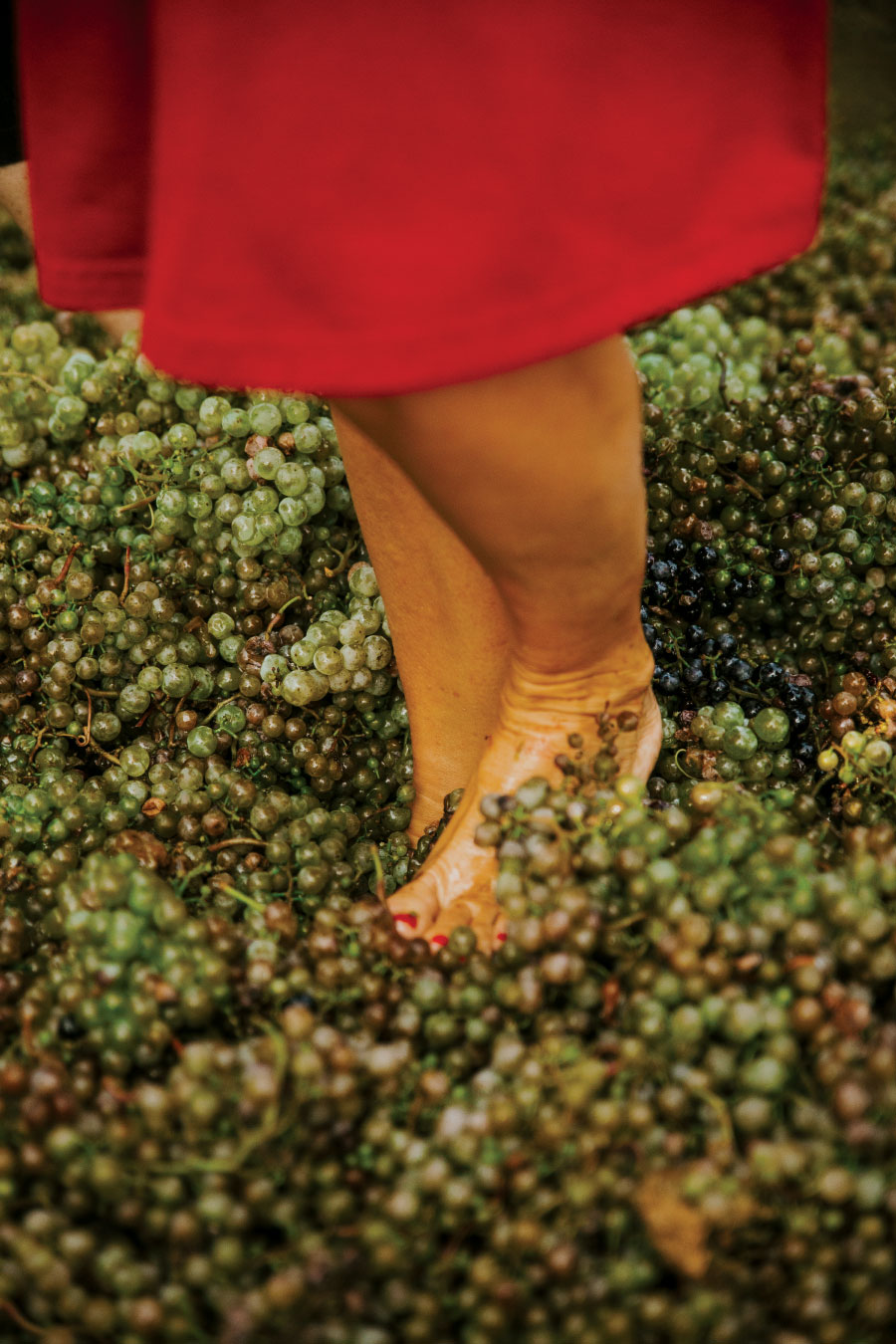
The full-time winery team has remained small since the get-go, with 10 to 40 people, depending on the time of year: about 10 in the office, another 10 in the field and 10 in the boutique, plus extras where necessary. Denis is the president and founder, and while he’s starting to step back from the day-to-day operations, he’s still around nearly every day.
“You’ll probably find him on the grounds with a glass of wine in his hand, talking with visitors,” Marie-Florence said. “That’s what he loves. We always say that we have titles, but everyone does a little of everything. We really support each other.”
Marie-Florence was a little girl when her parents started their winery. “During harvest, I’d be playing outside with the other kids, running around in the vineyards,” she said. As she grew older, she began working at the winery in the summer. She mowed lawns, worked in the vineyards and helped in the on-site wine boutique and with bottling, too.
“I used to put the labels on the bottles, before we had machinery to do it,” said Marie-Florence. “I’d put the stickers on, one by one by hand, listening to the Backstreet Boys in the background. Imagine that!”
Here in Quebec, we have a different point of view and we use different techniques from other wineries in Canada, but we can learn from them and they can learn from us.
Marie-Florence Crevier-Paradis, Domaine du Ridge
She studied psychology and communications at university. Then someone on the winery team quit one summer, and her dad asked if she could come back and help. “I never left,” she said. “That was 11 years ago.”
In the next few years, Marie-Florence will take on more responsibility as her father plans to step back as president. She is currently Domaine du Ridge’s managing director and her husband, Isaniel Clairoux, is the winemaker and designer, in charge of label design and branding.
The couple has three young children, who often spend time at the winery, slowly learning what it means to be part of a winery family. “Sometimes we are really busy here, but I want them to see that it is fun, too,” Marie-Florence said. “I’ve always had a real passion for this place, and it’s a great industry, too. I love it.”
Their Wine Growers Canada membership is important to the Domaine du Ridge team. For a time, Denis served on the board, and earlier this summer, Julien Lavallée, a lawyer and the winery’s sales director, became a board member.
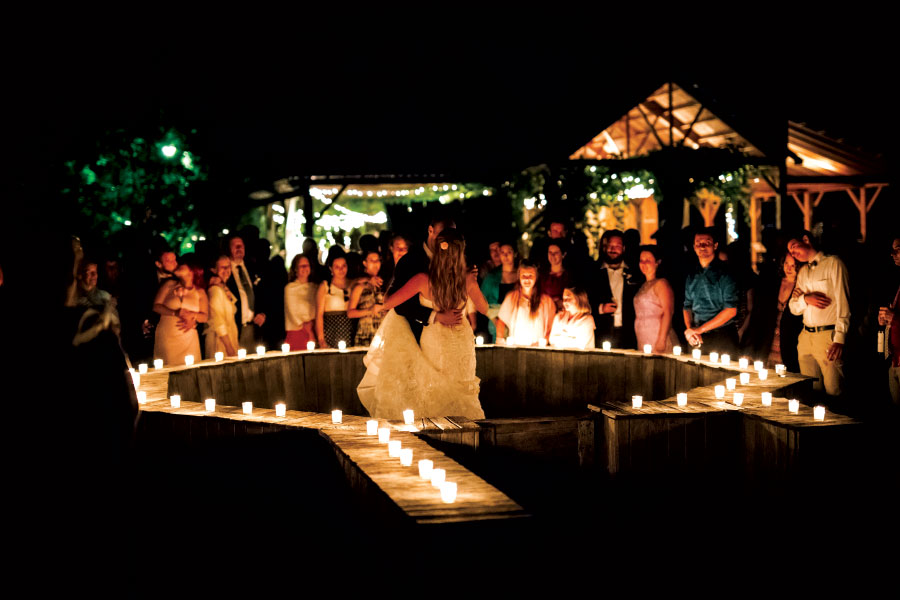
“It’s fun for him, but also we get a picture of what’s happening in the industry across Canada,” Marie-Florence said. “It’s very important for regulations, laws and sales, and you really realize that we as a winery are small fish in a big pond.”
That said, she notes that everyone has important knowledge to share. “Here in Quebec, we have a different point of view and we use different techniques from other wineries in Canada, but we can learn from them and they can learn from us,” she said. “At the same time, though, we all have a similar wine culture and we are very much alike. We can help each other.”
She and her team aim for a similar sentiment at the winery, too.
“Our team has a lot of different types of people, and together, we are great. Our entire lives are about being here. This is a special place, and we really believe in what we do,” she said.

